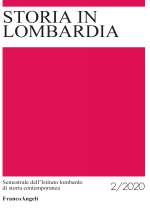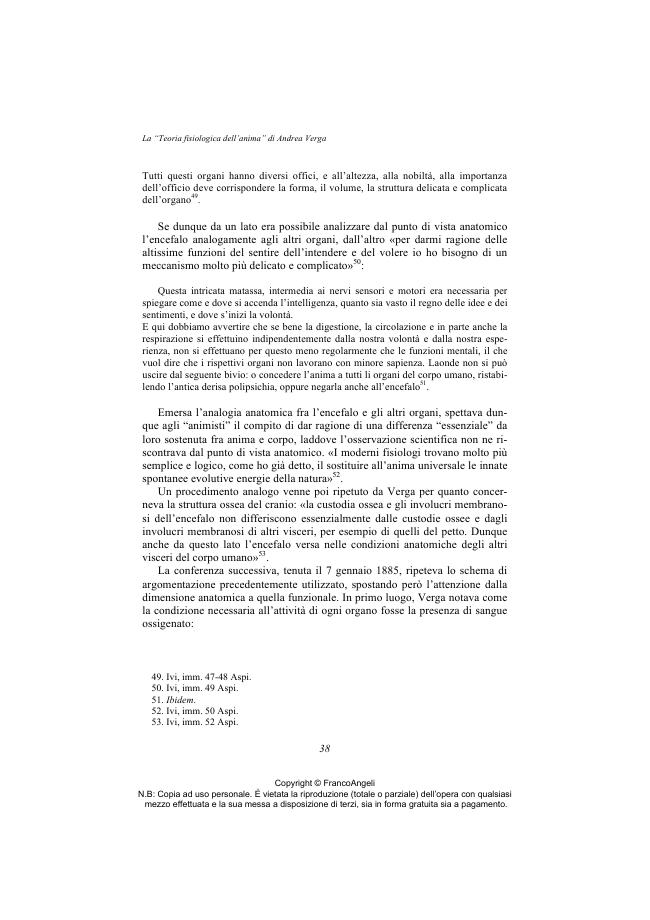La "Teoria fisiologica dell'anima" di Andrea Verga
P. 25-50
A partire dalla metà dell'Ottocento in Italia si sviluppò una psichiatria nazionale, di matrice medico-scientifica, che rivendicò il monopolio medico-psichiatrico della malattia mentale, con l'obiettivo di emanciparla da ogni retaggio filosofico e teologico. Figura chiave di questa transizione fu il medico e psichiatra lombardo Andrea Verga. Il saggio analizza le lezioni che Verga tenne per la cattedra di Dottrina e Clinica delle alienazioni mentali nel biennio 1884-86, nelle quali delineò la "Teoria fisiologica dell'anima", in base alla quale "l'anima non è che la funzione dell'encefalo".
Egli difese in primo luogo l'idea che fra il sistema nervoso e gli altri organi del corpo umano esistessero solo differenze quantitative: tale elemento rendeva possibile uno studio dell'anima come puro e semplice prodotto del funzionamento dell'organismo umano e, specialmente, come un oggetto di studi scientifici liberati da ogni ipoteca religiosa o metafisica. In secondo luogo, sostenne che fosse infondata l'idea che tale concezione dell'anima potesse minare il senso morale degli esseri umani e dunque danneggiare la società, perché l'agire morale umano sarebbe indipendente dalla convinzione che l'anima sia o meno immortale, che esista un Dio e che l'uomo disponga o meno del libero arbitrio. [Testo dell'editore]
Starting from the middle of the Nineteenth century in Italy a new kind of psychiatry developed, medical and scientific based, claiming the monopoly of the treatment of mental illness, with the aim of emancipating psychiatry from any theological e philosophical legacy. The Lombard psychiatrist Andrea Verga had a key role in this transition. The essay focuses on Verga's lessons for the "Doctrine and Clinic of mental alienations" course, during the years 1884-86, in which he outlined his "Fisiological theory of the soul", asserting that "the soul is a function of the brain".
Verga claimed that brain and other organs of the body are similar, with no qualitative difference between them: therefore, it was possible to study the soul as a pure and simple product of the operations of our body and, particularly, subject of scientific research, rid of any metaphysical and theological background. Furthermore, he claimed that it was unfounded the fear that this concept of the soul could weaken human morality and therefore damage society: human behavior, he argued, is largely independent of the immortality of the soul, the existence of God and the hypothesis that free will really exist. [Publisher's text]
Fait partie de
Storia in Lombardia : XL, 2, 2020-
Articles du même numéro (disponibles individuellement)
-
Informations
Code DOI : 10.3280/SIL2020-002002
ISSN: 1972-5035
DISCIPLINES
KEYWORDS
- Psichiatria, Ottocento, Andrea Verga, materialismo, storia della medicina, positivismo
- Psychiatry, Nineteenth century, Andrea Verga, materialism, history of medicine, positivism



